Tags
50 Shades of Grey, Complementarians, Denny Burk, Douglas Wilson, Egalitarianism, Fidelity, Gospel Coalition, Hard Complementarianism, intent, Jared Wilson, man penetrates conquers colonizes plants, marital sex, martial sex, psychoanalytic criticism, rape, Sex is What I do WITH my Wife, Soft Complementarianism, Southern Baptist Theological Seminary, What it Means to be a One-Woman Man, woman receives surrenders accepts
The scandal started with this post by author and pastor, Jared Wilson, on The Gospel Coalition website, which features a quotation from author and pastor Douglas Wilson including the following description of what he considers is good, biblical sex: “A man penetrates, conquers, colonizes, plants. A woman receives, surrenders, accepts”.
(The post was since grudgingly removed by Jared Wilson, after a load of complaints.)
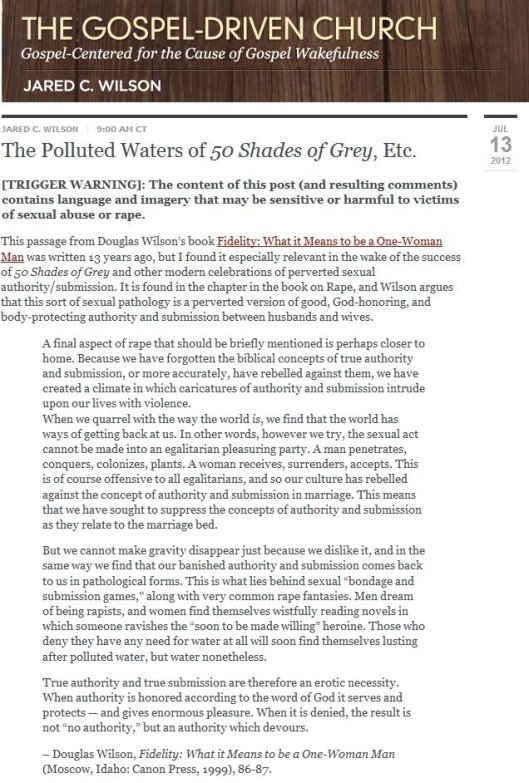 And then, following numerous expressions of outrage, Jared Wilson posted a defence of his quote from Douglas Wilson (also since removed):
And then, following numerous expressions of outrage, Jared Wilson posted a defence of his quote from Douglas Wilson (also since removed):
 Jared Wilson is a “Complementarian”, a euphemistic term for a group of Christians who support a hierarchy between men and women which, unsurprisingly, is in favour of men. Among Christian evangelicals, there is a rigorous ongoing debate between “Complementarians” and “Egalitarians”, the latter group opposing gender hierarchy, to some extent. While the Complementarian-Egalitarian division is the basic line of opposition, there are also – as Michael Bird and others maintain – various degrees of Complementarians, ranging from “Hard Complementarians” to “Soft Complementarians”. So Bird (Soft Complementarian) opposes Wilson (Hard Complementarian) … to some extent.
Jared Wilson is a “Complementarian”, a euphemistic term for a group of Christians who support a hierarchy between men and women which, unsurprisingly, is in favour of men. Among Christian evangelicals, there is a rigorous ongoing debate between “Complementarians” and “Egalitarians”, the latter group opposing gender hierarchy, to some extent. While the Complementarian-Egalitarian division is the basic line of opposition, there are also – as Michael Bird and others maintain – various degrees of Complementarians, ranging from “Hard Complementarians” to “Soft Complementarians”. So Bird (Soft Complementarian) opposes Wilson (Hard Complementarian) … to some extent.
I tried to make clear that I don’t think the Wilsons are malicious or deliberately trying to liken martial [sic] sex to rape. But I think these comments are incendiary, needless, hurtful, unbiblical, insensitive, and do not help the complementarian cause.
– Michael Bird, Sensitive Soft Complementarian, “Sex is What I do WITH my Wife, Not TO my Wife: A Response to the Wilsons at TGC”, Euangelion, 18 July 2012
Let’s see, a man “penetrates”, “conquers”, and “colonises” a woman. I would make a guess that Douglas Wilson most probably sanctifies what many of us would refer to quite simply as “rape” as The Biblical View of Marriage. I truly believe that he is sincere in his belief; it’s just that Douglas does not begin to appreciate that his expression of divinely sanctioned sexual intercourse in fact condones and even advocates aggressive and violent sexual attacks on women. He just doesn’t see it. He undoubtedly also sincerely believes that what he describes would be what is best for women. But why stop with Douglas Wilson’s intent? Given Douglas Wilson’s use of a group of violent terms for sex (and despite his odd protests that the terms “penetrate”, “conquer”, and “colonise” can be used in really quite nice ways), it is obvious that we should read him with more than a little suspicion. For even though Douglas Wilson is speaking from ignorance, his words quite obviously do in fact liken marital sex to rape.
Or, to employ Bird’s malapropism from the quote above, what Douglas Wilson in fact advocates is “Martial Sex”. (Now there is the quintessential example of a Freudian slip!)
But Bird is not the only Complementarian stating that he disagrees with the Wilsons, while at the same time saying that we should really respect their honest intent. Here’s Denny Burk:
Egalitarians [e.g., McKnight, Held Evans, and Kirk] are out in full-force claiming that Doug Wilson, Jared Wilson, and TGC are openly supporting rape and abuse of women. If authorial intent means anything, then that is a slander. That is not what Doug Wilson meant, nor is it what Jared Wilson intended by quoting him. We can quibble over the language, but the false accusations need to stop.
– Denny Burk, Harder Complementarian, comment to “Sex is What I do WITH my Wife, Not TO my Wife: A Response to the Wilsons at TGC”, Euangelion, 18 July 2012
Denny Burk, Associate Professor of Biblical Studies at the Southern Baptist Theological Seminary, also wants to let matters rest with Douglas Wilson’s intent – which is, as noted, fairly much completely ignorant that what he is advocating amounts to rape. But whatever happened to critical reading? Surely an Associate Professor of Biblical Studies is capable of reading between the lines and … oh hang on, I see: “Southern Baptist Theological Seminary”. OK, well, then, I guess because Wilson said it, Burk believes it, and that settles it.
It is worth noting that Denny Burk makes the same Freudian slip as Bird, referring not to “marital sex” to describe Douglas Wilson’s views, but to “martial sex”. Ironically, this whole scandal first erupted when Jared Wilson got hot under the collar about the portrayal of B&D in the novel 50 Shades of Grey. But why is it that the (soft and hard) complementarians are the ones banging on about “martial sex”?
Yet I guess psychoanalytic criticism isn’t at the top of the teaching menu down at the local Baptist Seminary.
Further reading:
Complementarians
Bekah Wilson, “Them’s Fightin’ Words”
Nancy Ann Wilson, “10 Reasons to be Glad When Your Husband is Slandered”
Heather Linn, “A Note for Rachel Held Evans”
Douglas Wilson, “The Politics of Outrage”
Douglas Wilson, “Probably Not! She Thundered”
Douglas Wilson, “Cloacina, Goddess of Sewers”
Michael Bird, “Jared Wilson takes down TGC Post”
Others
Ryan K. Knight, “Doug Wilson on The Gospel Coalition: How Christian Patriarchy Turns Sex into Rape and Pregnancy into Slavery”
Grace, “Conquer, colonize, enslave: On redefining words and rewriting history”
Paul Burkhart, “The Gospel Coalition & Sex as Conquest: Jared Wilson, you’re better than this {1}”
Paul Burkhart, “The Gospel Coalition & Sex as Conquest: it’s still misogyny, however unintended {2}”
Rachel Held Evans, “Thank you, Gospel Coalition and Jared Wilson”
Rachel Held Evans, “Some final thoughts on The Gospel Coalition, sex, and submission”
Rachel Held Evans, “The Gospel Coalition, sex, and subordination”
Eric Reitan, “‘Benign’ Christian Patriarchy and 50 Shades of Grey: A Response to Jared Wilson”
Eric Reitan, “The Piety That Lies Between: A Progressive Christian Perspective”
Libby Ann, “Marital Rape? Doug Wilson on Dominance and Submission in the Marriage Bed”
Dianna Anderson, “The Writer’s Burden”
Scot McKnight, “Thank you”
Scot McKnight, “Take it down”
Eric Rodes, “50 Shades Of Circling The Wagons”
Sarah Over the Moon, “Rape: A Punishment for Egalitarians?”
Chaplain Mike, “Sex, Authority/Submission, and Remarkable Insensitivity”


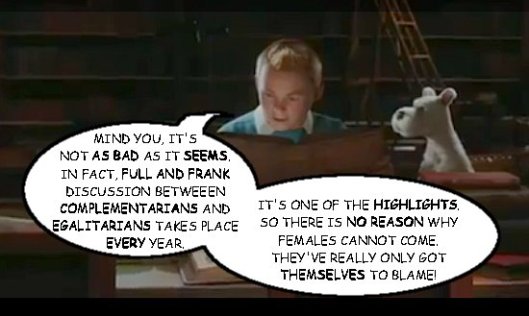
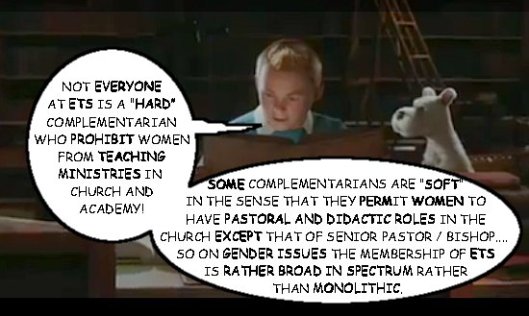

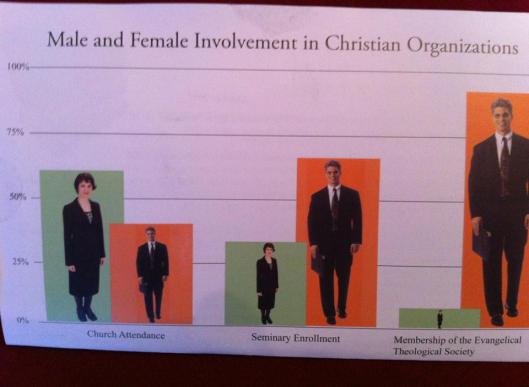


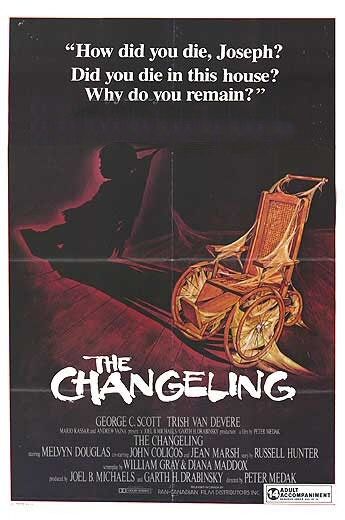



 And for some of these people, this of course equates with the loss of authority of the God-Father figure – once that has been “undermined” then all chaos breaks out (supposedly). And for the State to be a party to this emasculating of both men/fathers/God, then no wonder the debate is fierce!!!
And for some of these people, this of course equates with the loss of authority of the God-Father figure – once that has been “undermined” then all chaos breaks out (supposedly). And for the State to be a party to this emasculating of both men/fathers/God, then no wonder the debate is fierce!!! So I am in this amazing study, right, and it’s just lined with books. I am running my fingers along the spines, not even looking at the titles really – it’s the overall feel of them that tells you all you need to know. And he is sitting just over there, in that leather armchair, barely visible through the smoke. I don’t mind the smoke – it’s from a pipe, or a cigar maybe, take your pick. He’s got that look in his eye, I just know it – you know the one – a smoldering sparkle just ready to burst into flame. I can tell even if I am not looking at him. I pretend to look at the books.
So I am in this amazing study, right, and it’s just lined with books. I am running my fingers along the spines, not even looking at the titles really – it’s the overall feel of them that tells you all you need to know. And he is sitting just over there, in that leather armchair, barely visible through the smoke. I don’t mind the smoke – it’s from a pipe, or a cigar maybe, take your pick. He’s got that look in his eye, I just know it – you know the one – a smoldering sparkle just ready to burst into flame. I can tell even if I am not looking at him. I pretend to look at the books.